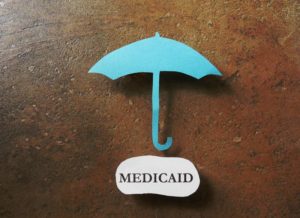Can I Get Medicaid If I Have Money In The Bank
Asset Limit For Medicaid In Texas
Before you get approved for Medicaid, a joint federal and state program, you have to meet certain income and asset limits. Medicaid is designed to help low-income people with few assets to cover health care costs for long-term care. However, many people are confused about what limited resources mean and whether the assets they own can disqualify them for the program.
A Medicaid attorney can help you plan for Medicaid to help you get approved for the program when you apply.
Are You Eligible For Medicaid?
Medicaid Asset Limits By State
Just because you own property and have significant amounts of money in your bank account does not mean that you are not eligible for Medicaid. There are assets that you can own and still qualify for Medicaid. An experienced Medicaid attorney can show you can use loopholes in the rules to make you eligible as long as give you additional information about medicaid asset limits in Texas.
Each state has its own rules for Medicaid, which means that financial and medical eligibility requirements are different in every state.
What Are Countable Assets?
Medicaid Asset Limitations In Texas

But many states provide wiggle room that allows for a limit that is significantly higher than the specified amount. For example, some states have a much higher resource limit for seniors that are disabled. Some states are working on phasing out asset limits altogether for people who are 65 years old or older. See also…attorney for medical bills.
For instance the asset limit in California is higher for people with a disability who are 65 years or older and is planning to phase out the asset test by 2024. Each state has a different asset limit for married couples and a trusted lawyer can give you more detailed answers regarding the amounts.
Are All Your Assets Countable?
What Assets Can You Keep When You Go On Medicaid
Many people wonder whether all the assets they own are countable toward Medicaid. Assets such as your primary residence, life insurance, car, funeral and burial funds, and property for self-support are exempt or are not counted toward Medicaid. Your primary residence is the home in the state in which you are applying for Medicaid.
Your equity value in your home minus debts must not be more than a specified amount however some states set the limit while others don’t even have a limit, you should inquire with a trusted attorney for the specific amounts. Your primary residence should be the home that you continue residing in and will return to after hospitalization or after rehabilitation. But it remains exempt if a family member continues living in it.
Another exempt asset is one automobile that you use for transportation. Your funeral and burial funds are also exempt if they are non-refundable and pre-paid. Life insurance policies are exempt only if they do not exceed the face value limit.
In addition, property for self-support or property that you rely on to make a living such as your farm, rental properties, equipment, and more are also exempt. Your Medicaid planning attorney can give you more details on what type of assets are exempt and how you can spend down to be eligible for Medicaid.
